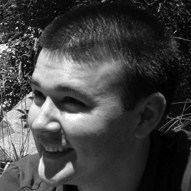
I graduated from ASU in 2010 with a degree in English Literature (truth: on my resume, I leave off the “Literature” part). A little less than one year later, I got a job at an environmental consulting company where I have grown to be the sole editor of the small, 60-employee firm.
I originally applied to be a “Word Processor” via their Craigslist post. A lot of people are shocked to find out I found my steady, full-time, full-benefits employment through a website known for its scams. When job searching, I still check out Craigslist as well as LinkedIn, Monster, and other sites. You come to recognize the scams on Craigslist, and have to be okay with many of your applications likely going nowhere.
Here is what I’ve learned in my years since graduation.
If you want to work with words, regardless of how boring your job is, the money seems to be in the Technical Writing field. My only regret from my education is not taking a course or two in technical writing. I, for one, am totally okay with having a boring job. (Note the difference, I am not unhappy with my job, it’s just not the most exciting work in the world). I made that distinction when I graduated; separate the enjoyment I find editing (work), from my investment in writing and poetry as an art form (passion). Boring as my desk job may be, I still find great satisfaction in knowing that, because of my work, some small fraction of the words going out into the world read well and look nice. Give me the boring for eight hours a day so I can pay my bills and have the free time to develop my passions.
Technical editing, what I do for Transcon Environmental, is also in some demand. What I’ve found, though, is that you need to have another skill-set or area of expertise to fall back on. I happen to be incredibly organized—almost to a fault—so when my editing is light, I function also as the Administrative/Executive assistant for the company. You will market yourself better if your writing/English degree is the backbone for your other talents and skills. And don’t discount your liberal arts education (I highly recommend David Foster Wallace’s commencement speech about the value of a liberal arts education); these four years at university have turned you into a well-rounded, disciplined, learned individual. Everything you’ve learned in school, every way you’ve grown and the traits and habits you’ve developed should be included in your resume/cover letter/application process.
There are places to put your English degree to use outside of academia. I have been introduced to the environmental consulting and urban planning industry. In order for utility companies to build and alter their infrastructure, they need consultants like us to ensure they are complying with federal and state laws (among other things). We produce reports based on our research and field surveys, these reports get circulated through federal agencies, tribal nations, land management companies, etc. I never knew such an industry even existed, let alone that they produce numerous reports that, through rounds of revisions, get signed-off on by the government so that construction companies have to follow the mitigation we outline in the report. It’s important that these documents are thoroughly proofread, wordsmithed, and clean of technical errors. Just because you like to work with words doesn’t mean you’re stuck in the academia or publishing worlds.
The job search process is frustrating, disappointing, and sometimes heart-wrenching. Be prepared for this. Build a thick skin now, in preparation. I lost count of how many jobs I’ve applied to over the years. I recently relocated and, before being offered to transfer and stay with Transcon, I was applying back home on the east coast to around 10–15 jobs per week. I applied for things I was over-qualified for, under-qualified––anything––I just wanted a lead. Resumes, once formed, are easy and don’t change much. Cover letters, on the other hand, is where your time and effort should be invested during your job search. Try to make yours stand out from the rest. Show your potential employer you are serious about the job; show them you’ve done your research by doing things like including their physical address on the cover letter, or alluding to details on their website. Explain how you, as a person with your own individual personality traits, would benefit their company. Don’t rush through customizing your cover letter. The job search takes time and commitment, just like class assignments; try to respect it with the same level you’d respect an assignment. Your resume should highlight your work experience, your cover letter should highlight your personality traits, and NEITHER should be intended to get you a job. Your resume and cover letter get you an interview; your performance in the interview gets you the job (no pressure).
Try not to get frustrated during your job search, don’t discredit or doubt your English or liberal arts education, be persistent as you apply for jobs (I called my current employer every week for months until my position with the company was firm). Sell yourself and what you have to offer. Write your cover letter, walk into an interview with the attitude that it is the THEIR loss if they don’t hire you.
